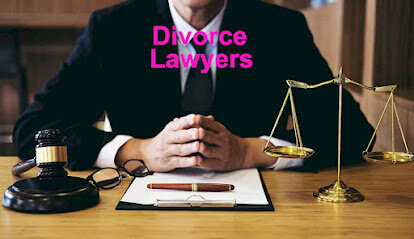Best Land Use & Zoning Lawyers in New York
Share your needs with us, get contacted by law firms.
Free. Takes 2 min.
Free Guide to Hiring a Real Estate Lawyer
Or refine your search by selecting a city:
List of the best lawyers in New York, United States
About Land Use & Zoning Law in New York, United States
Land use and zoning law in New York regulates how land and buildings within the state can be used, altered, or developed. These laws are designed to promote orderly development, protect the environment, and ensure compatibility among neighboring uses. Zoning ordinances divide municipalities into zones, such as residential, commercial, or industrial, and specify how property in each zone can be used. In New York, both state statutes and local municipal codes govern land use and zoning, making it crucial to understand the specific rules applicable to your locality.
Why You May Need a Lawyer
Legal assistance can be invaluable when dealing with land use and zoning issues in New York. Common situations where a lawyer may be needed include:
- Seeking a zoning variance or special permit for a specific land use that is not normally allowed in your zoning district.
- Challenging a neighbor’s construction or development project that might negatively affect your property.
- Understanding or opposing changes in local zoning laws that impact your property or business operations.
- Navigating disputes between property owners and local agencies regarding compliance with zoning or land use regulations.
- Dealing with eminent domain matters or government acquisition of private property.
- Addressing violations or enforcement actions from local building or planning departments.
- Guiding real estate transactions to ensure compliance with relevant planning and development laws.
Because New York’s laws can be complex and subject to local variation, having a knowledgeable attorney can help you protect your rights and navigate the administrative and legal processes efficiently.
Local Laws Overview
In New York, land use and zoning regulations can vary significantly from one municipality to another. Some key aspects to consider include:
- Zoning Ordinances: Each city, town, and village adopts its own zoning code which defines permitted and prohibited uses for each zone, such as residential, commercial, mixed-use, or industrial.
- Comprehensive Plans: Municipalities are encouraged to prepare comprehensive plans outlining long-term development goals, which often guide local zoning updates.
- Variances and Special Permits: Property owners can seek relief from strict application of zoning laws through variances or obtain special permits for uses not typically allowed, both usually decided by local zoning boards.
- Site Plan Review: Many development or major renovation projects require site plan approval from a local planning board before work can begin.
- Overlay Districts: Some municipalities utilize overlay districts to provide additional protections or restrictions, such as for historic preservation or environmental conservation.
- Statewide Environmental Regulations: State laws like the State Environmental Quality Review Act (SEQRA) may apply to certain projects, requiring environmental reviews prior to approval.
- Building Permits and Code Compliance: Construction and renovation usually require local building permits and must comply with zoning and building codes.
Compliance with both state statutes and local regulations is essential. Consult your local planning or zoning board for specific requirements in your area.
Frequently Asked Questions
What is zoning?
Zoning is the division of a municipality into districts, each with regulations prescribing how land and buildings may be used. Common zoning categories include residential, commercial, industrial, and mixed-use.
Who enforces zoning laws in New York?
Local governments, through their code enforcement officers and zoning boards, are responsible for administering and enforcing zoning laws.
Can I use my property for any purpose I want?
Not always. Your property use must comply with the zoning regulations of your area. Using property for a nonpermitted use can result in penalties and enforcement actions.
How do I apply for a zoning variance?
You must file an application with your local zoning board of appeals, explaining the need for an exception to the usual zoning rules. Public hearings are typically required before a decision is made.
What is a nonconforming use?
A nonconforming use is an existing property use that was legal when established but no longer conforms to current zoning regulations due to changes in law. Certain protections may apply.
What happens if I build without required permits?
Unauthorized construction can result in fines, stop work orders, and in some cases, required demolition or removal of the unauthorized work.
Can neighbors object to my building project?
Yes, neighbors may object during public hearings for variances, special permits, or site plan reviews. Their concerns are considered by the zoning board.
Is New York City subject to the same zoning rules as other parts of New York State?
New York City has its own specialized zoning resolution, which is separate from zoning codes in other municipalities. The basic principles are similar, but the rules and procedures can differ.
Are there state laws that impact local zoning?
Yes, state laws such as SEQRA require certain environmental reviews that can affect the approval process for land development. State and local rules often overlap.
How long does the zoning approval process take?
The timeline varies depending on the type of application, local procedures, and the complexity of the project. Some approvals can take several months or longer.
Additional Resources
If you need more information or assistance, consider these resources:
- New York Department of State, Division of Local Government Services - offers guidance on zoning and planning for local officials and the public.
- Local municipal planning or zoning board offices - provide detailed information about local codes and procedures.
- New York State Bar Association - can help you find attorneys who focus on land use and zoning law.
- New York City Department of City Planning - for matters in the five boroughs of New York City.
- Legal aid organizations - may offer assistance for low-income individuals facing land use issues.
- Public libraries - often have municipal codes and guides for landowners available for reference.
Next Steps
If you believe you need legal help with a land use or zoning issue in New York:
- Gather all documents related to your property, such as deeds, maps, and past permit applications.
- Visit or contact your local planning or zoning office to obtain the specific regulations and procedures that apply to your inquiry.
- Consult a qualified attorney who practices land use and zoning law in your area to discuss your circumstances and potential options.
- Prepare a clear description of your problem or objective, and note any deadlines from local authorities.
- Follow your lawyer’s advice and timelines to ensure compliance and protect your interests throughout the process.
Taking early and informed action with the help of a knowledgeable lawyer can greatly increase your chances of a favorable outcome in land use or zoning matters in New York.
Lawzana helps you find the best lawyers and law firms in New York through a curated and pre-screened list of qualified legal professionals. Our platform offers rankings and detailed profiles of attorneys and law firms, allowing you to compare based on practice areas, including Land Use & Zoning, experience, and client feedback.
Each profile includes a description of the firm's areas of practice, client reviews, team members and partners, year of establishment, spoken languages, office locations, contact information, social media presence, and any published articles or resources. Most firms on our platform speak English and are experienced in both local and international legal matters.
Get a quote from top-rated law firms in New York, United States — quickly, securely, and without unnecessary hassle.
Disclaimer:
The information provided on this page is for general informational purposes only and does not constitute legal advice. While we strive to ensure the accuracy and relevance of the content, legal information may change over time, and interpretations of the law can vary. You should always consult with a qualified legal professional for advice specific to your situation.
We disclaim all liability for actions taken or not taken based on the content of this page. If you believe any information is incorrect or outdated, please contact us, and we will review and update it where appropriate.
Browse land use & zoning law firms by city in New York
Refine your search by selecting a city.














